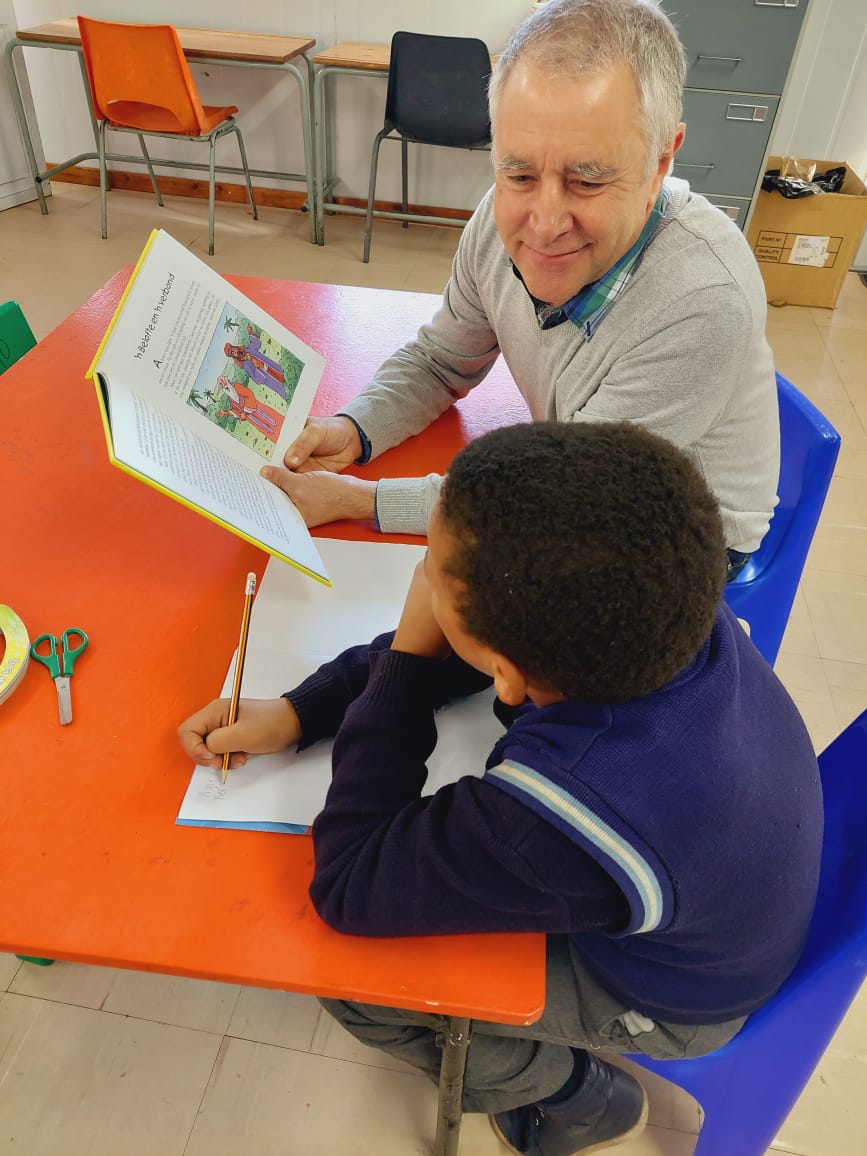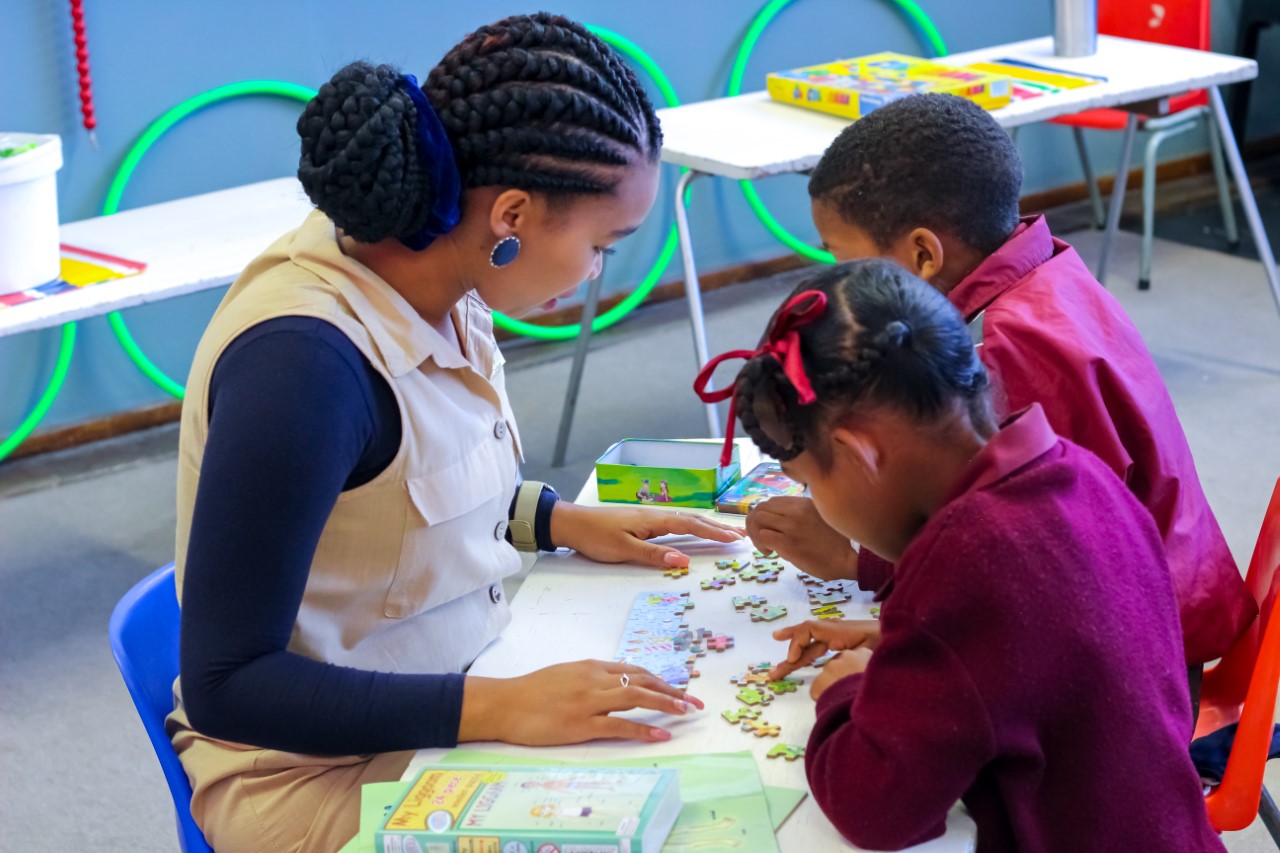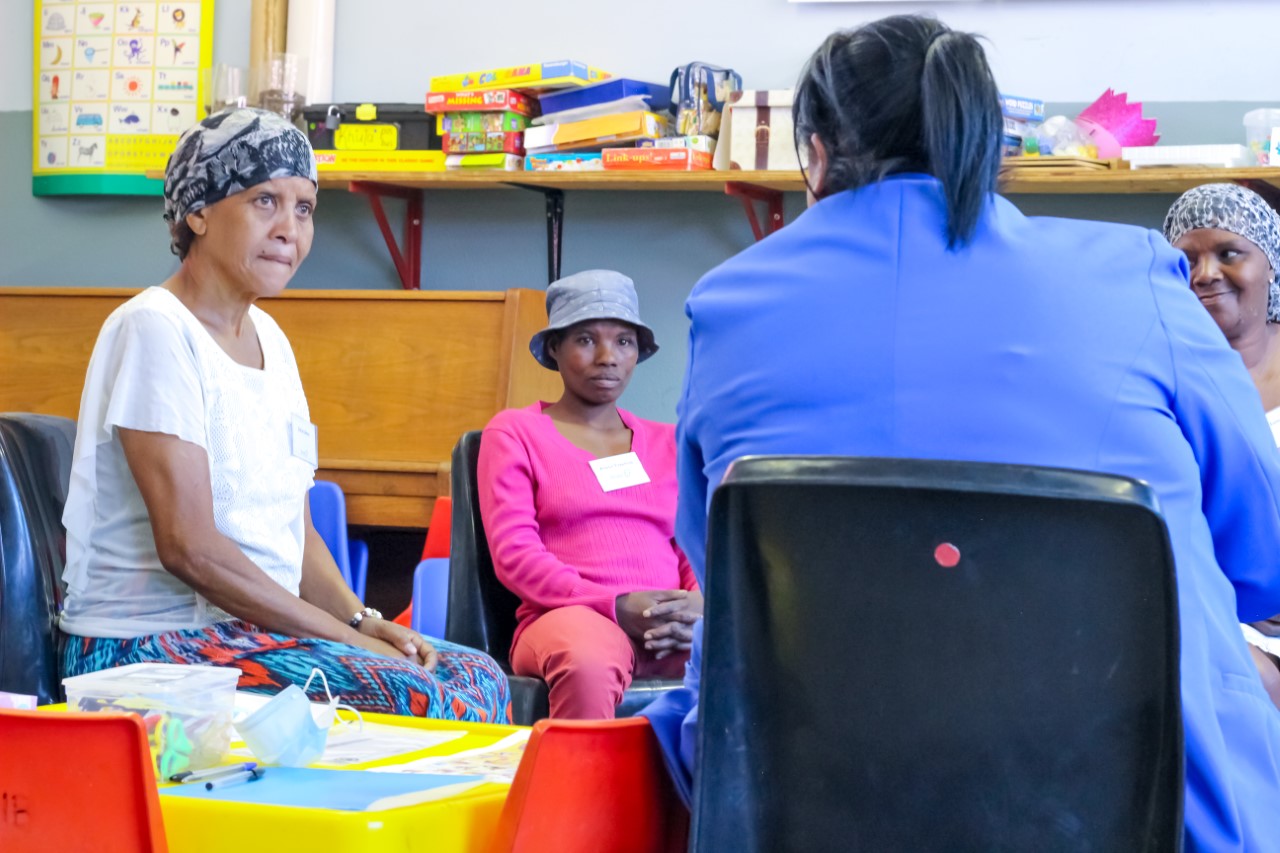School dropout rates in South Africa are the highest they have been in 20 years, with a triple-fold increase leaving 750,000 children out of school due to the COVID-19 pandemic according to the United Nations. Among those struggling to improve the situation are Erns and Daleen Labuschagne, two passionate educationalists from South Africa.
Our Hero Stories guests, the CEO and the Program Director of a local non-profit, the Khula Development Group, reveal the causes of high dropout rates in the country, the impact of apartheid on education, and the response needed to break the poverty circle in the West Cape communities. They also share why they gave up their positions in finance and social care and became involved in the child education sector, how they have succeeded in expanding their interventions in West Cape, and stimulated similar activities at regional level.
DevelopmentAid: Your common commitment to bring the hope of a better future to the children of South Africa can be observed not only from the efforts of the organization you lead but also through your personal involvement in this issue. How have you ended up in the sector?
DaIeen: I was always troubled by the high number of children not attending school, roaming the streets aimlessly. A lot of them even came to our house, asking for food. I was always giving them something, although you can’t really help them by just giving hand-outs. You need to find other ways to help, proper ways to bring about sustainable change. Being a qualified social worker and with my husband an expert in finances, I felt that we could change the situation, especially when we shared the passion.
Erns: I just realized that at the end of the day I must have contributed something not only to my own life but to people surrounding me, and to my country too. When I was a portfolio manager in the banking system, I managed the investments of rich people. I didn’t feel I was contributing to something meaningful. Being led by the idea that we have to do something to change the next generation, I resigned from my position to embrace a new sector. Daleen became the Program Director while I am the CEO of the Khula Development Group. It was scary at the beginning, but here we are 17 years later and we are still doing that. We, as a family, want to change the next generation.
DevelopmentAid: Witnessing all the inequalities that children were facing, how did you decide to address these and give children the chance of a better future?

Erns: Our educational system is broken. In South Africa, we have registered a high school dropout rate. Less than 50% of children starting at the primary school grade succeed in completing their studies and ending up in the 12th grade. Only 40% of these children are able to continue their educational cycle at university. Actually, at the end of the day, even a smaller number of children pursue their studies and bring economic hope for their families. We realized that we had to intervene, to start our small contribution that would grow and spread to South Africa. We have to change the next generation, to bring them hope for a better future. We kept working with our children for years, we sustained a database for years, we work mostly in the “brown communities” in South Africa (a multiracial ethnic group native to Southern Africa who have ancestry from more than one of the various populations inhabiting the region – editor’s note) to stress the importance of education, to promote a culture of learning and strengthen the value of education and attendance through child & primary caregiver participation, youth activation and community
collaboration. We plan our programs according to that.
Daleen: We are committed to bringing the value of education to entire communities. We are aware of the fact that we are dealing with a systemic problem involving children’s households, schools, and communities. Our focus is on children from grade R (the year before children in South Africa start formal schooling) to grade 4. We have narrowed our intervention to offer an effective targeted response. We work individually or in groups, providing activities during school hours, trying to establish a connection with the child who might then open up and tell us about the difficulties he or she is facing at home. It’s crucial to work with the community where the family lives and increase awareness among its members. We organize play activities with children on street corners, in front of their houses. Children are learning while they are playing.
DevelopmentAid: Why don’t children have the motivation to continue their studies?
Erns: School absenteeism is linked to the household. It is always about the social circumstances. If there is no attachment between the primary caregiver and the child, the parents won’t be involved in the child’s education. In our area specifically, we are dealing with fetal alcohol drama, high poverty rates, gender-based issues, children’s premature labor involvement, and the lack of the capacity of schools. Our schools are very crowded. Most of them have around 40-45 children in a single classroom. It is not a surprise that some of the teachers concentrate on those giving the best response, those involved in the activities that are organized. By being ignored, the rest of them just fall out of the educational process. The high drop-out rate is actually between grades 3 and 4, and also between grades 6 and 7.
Daleen: Unfortunately, until now the focus of the educational system was on the age of the child, not on his development stage. Thus, a nine-year-old child, without proper academic skills will be in a certain grade even if she/he cannot cope with the curricula. The teachers are not motivated to work individually with them.
DevelopmentAid: The education of girls is of particular concern: 9 million girls on the continent between the ages of 6 and 11 will never attend school, compared to 6 million boys. By the time they reach adolescence, girls have a 36% exclusion rate compared to 32% for boys.

Daleen: Like in all countries affected by high rates of poverty, being a girl is difficult. They don’t really have money to buy the necessary hygienic sanitary pads. That’s a factor that stops girls from going to school. Another huge problem is teenage pregnancies. However, schools welcome back the teenage girls after having a baby so that they are not excluded from education. Then, we have the social circumstances, the challenges to find care for the baby, the issues related to income shortages, the precarious living conditions. I would dare to say that it’s a social circumstances-based situation.
DevelopmentAid: Apartheid had a tremendous impact on the system, causing stark inequalities and chronic underperformance. Does its legacy affect the system today?
Erns: Apartheid had a huge effect on education in South Africa. Before 1995, a lot of money was spent on white schools, and much less money was oriented to the development of any other schools. Apartheid impeded non-white children from studying and progressing like the white children. Teacher education colleges were only for white people. The racial segregation created a huge problem. Since 1995 all this has changed. Everyone was welcomed everywhere but unfortunately, after 27 years, the new government’s focus is not on education. Thousands of our schools don’t have decent facilities to be used by children. They don’t have proper toilets, there is no water, no internet connectivity. There is a huge disparity between very rich schools and the rest of schools.
DevelopmentAid: How can you try to stimulate the relationship between families, schools, and the community as a mandatory condition for the educational system’s development?

Daleen: During the Covid-19 pandemic we weren’t allowed to provide our services within schools so we had to make a plan. We decided to start home learning but we couldn’t go into the household. We found the children on the streets. We started to provide interesting activities for them. When we focused on one child, another 20-30 children then came along and joined the games. We perceived this to be a way to involve the community in the education of our children. We played board games and read booklets with the primary caregivers. That was actually noticed by our Western Cape Education Department (WCED) representatives. They scaled it up as a project to involve and pay young unemployed youth to improve their capacities in order to reach more children. This project was accepted by WCED and will be rolled out by 3,000 interns who will be responsible for reaching the communities in the Western Cape. If you want to empower the community, you have to set the example, you have to teach and show them the possibilities they could exploit. They don’t know how to do it. Identifying strong role models in the community is one of the answers.
DevelopmentAid: There is clearly an urgent need to reimagine and transform basic education in a changing world. How would you see this reimagined world?
Daleen: A dream world doesn’t stop at one specific community. We have to focus on the one individual in front of us. If we can start with one school, build support systems around it, where every household feels supported, where the institution can rely on efficient circles of support like social workers, occupational specialists, and teachers to ensure that everybody is involved, our children will get the attention they need and gain enough skills for their development.
Erns: We can start with a small community and its households, make them strong. We have to break this poverty circle and we can do it. If you look individually at that child in front of you, he will have a future.

